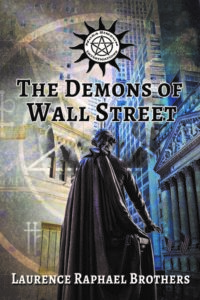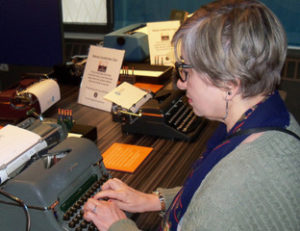 It’s difficult being someone my age who says she writes. Especially when I explain to people what kind of stories I like to write. Then, when I try to advertise my work that I post online, I always get the “do you write fanfiction?” question. This is possibly by far the worst question you can ask a teenage writer.
It’s difficult being someone my age who says she writes. Especially when I explain to people what kind of stories I like to write. Then, when I try to advertise my work that I post online, I always get the “do you write fanfiction?” question. This is possibly by far the worst question you can ask a teenage writer.
The problem with being a young writer who wants to get out there is that there only so few places we can post. I know some will create Tumblr blogs. If you tell a person to post your work on your Tumblr blog, I can only imagine the look of disgust followed by the treacherous inquiry.
I, like so many teenagers, choose to post their work on Wattpad. Honestly, I shouldn’t be surprised by looks I get when I say, “Oh hey! You can read my work on Wattpad!” I’m asking to get punched in the face repeatedly. In my defense, I joined Wattpad before the One Direction fangirls took over. However, I didn’t start posting until they took over the website, which was not beneficial for me. For someone who dislikes fanfiction and what it is, being dominated in views by twelve year olds writing One Direction smut, is truly an embarrassment.
I didn’t know what I was doing wrong. I wrote some quality writing (well, for a high schooler) and had followers. Over the years I have accumulated a total of five hundred and thirty-seven followers but my views were still small.
On Wattpad, viewers can “vote” on stories they like. They can “vote” on each chapter. Think of the “voting” like thumbing up a video on YouTube. Rumor had it that if you got famous on Wattpad, you’d get your book published. Ali Novak got her book My Life With The Walter Boys published. She was practically my inspiration. She had started writing when she was fifteen, and it just so happened that I was fifteen when I started posting my story.
I wanted to use Wattpad as a way to get critiques on my story. I did everything I could to promote it. I told friends, I followed people who followed me back, and left comments on other people’s stories. Still, my profile was like a ghost town. That was when it hit me; I needed a flashy cover! I asked someone online to make me a cover. Maybe the pretty cover would attract more people.
A couple weeks later, I got a cover for my story Happy Endings and it was magnificent. It was everything I had hoped for. The user made seven different covers for which were all astonishing. The user even wrote a review of the few chapters I posted of my book and wrote an amazing review! How could I not be ecstatic? I was suddenly boosted with the confidence I needed.
I continued to write my story. I posted chapter after chapter but still, it was getting no love from viewers. I had fallen into a rut. Why were all these other stories getting major views and votes and doing better than me? In my mind, I thought I was a bad writer and that I’d never get anywhere with my story. I lost motivation.
I was lost in the moment. I became obsessed by being popular on this stupid website. I wasn’t writing for me anymore. I was writing for the website. Writing Happy Endings didn’t make me happy anymore. It suddenly became a chore. With the help of some of my friends and family, I crawled out of the hole of desperation.
It’s hard being a writer when you’re a teenager. You want nothing more than to get your story out there and be famous. The easiest way to to that at our age is get internet famous. I had to realize that getting internet famous wasn’t the best route.
When you’re a young writer, you write for you. You want to create a story that resonates with people. I wrote to escape and I wanted to share it with people. Just because people online weren’t reading my story didn’t make it an awful story. You should focus on the content and not the views.
I’m not saying Wattpad is completely awful. I did get a few genuine responses towards my stories. I think what’s best for young writers, whether in high schooler or in college, focus on the story and make a goal for yourself. I may not be swimming in views and followers, but I don’t need to. As long as I am proud with the quality of writing I am producing, I am content. And who knows, maybe one day a group of twelve year olds will be writing fanfiction based on my work.
Molly Baumgardner is a young writer and cat enthusiast. You can read some of her work at https://www.wattpad.com/user/awesomewriter65
Enjoy this writing advice and want more content like it? Check out the classes Cat gives via the Rambo Academy for Wayward Writers, which offers both on-demand and live online writing classes for fantasy and science fiction writers from Cat and other authors, including Ann Leckie, Seanan McGuire, Fran Wilde and other talents! All classes include three free slots.
If you’re an author or other fantasy and science fiction creative, and want to do a guest blog post, please check out the guest blog post guidelines.












